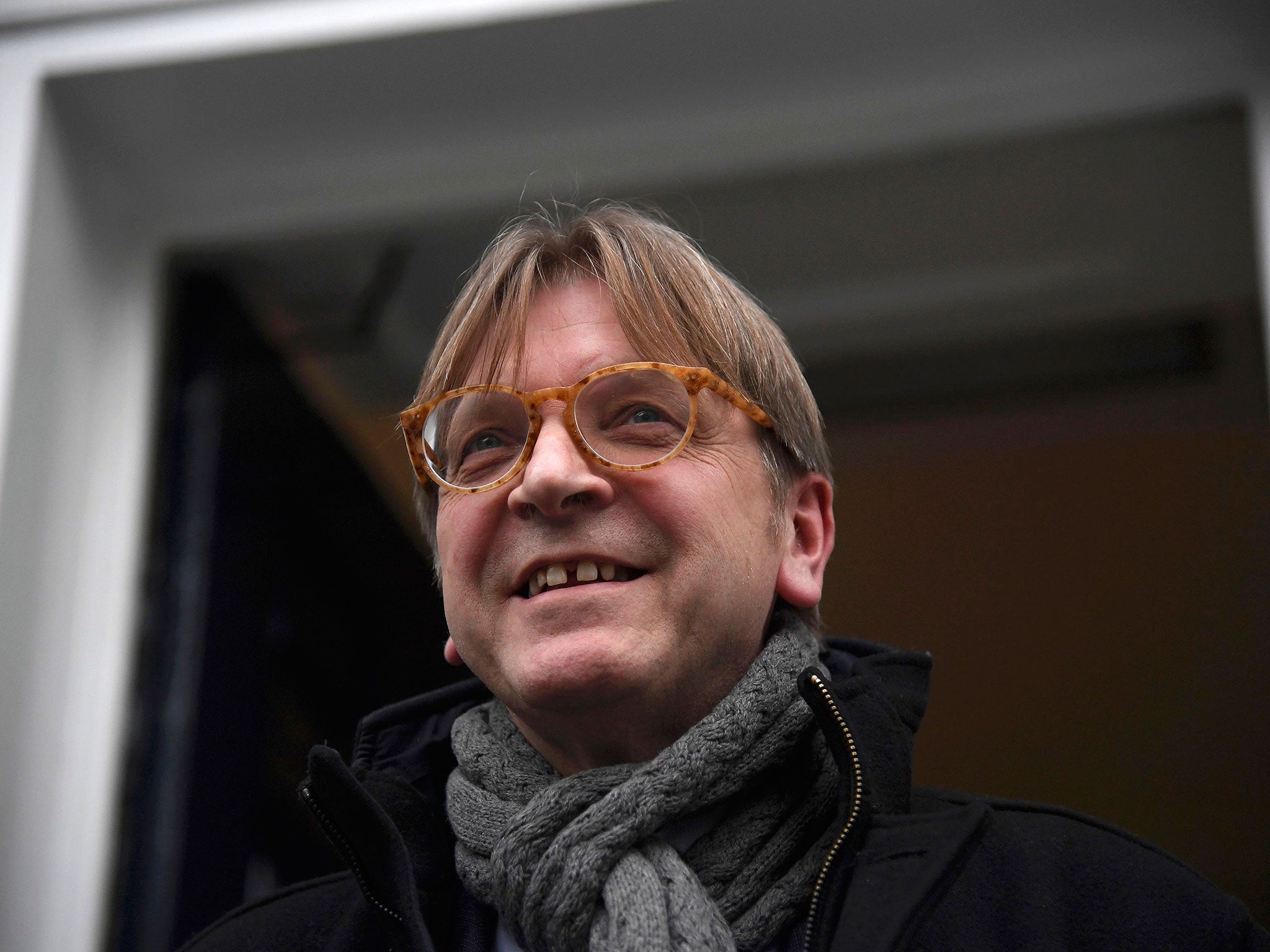UK will remain part of European Court of Justice under transitional Brexit deal, says top EU negotiator
Position would be hugely frustrating for Theresa May, who has a long standing dislike of European Courts

The UK could remain subject to the European Court of Justice (ECJ) for years as part of a transitional deal with the EU, Europe’s top Brexit negotiator has warned.
A transitional deal - favoured by Theresa May - would follow the invocation of Article 50 until the withdrawal process has been completed, but could be in place a long time after 2019.
But Guy Verhofstadt, former Prime Minister of Belgium, said to the Guardian: “The starting point from the European side” would be to keep the UK part of the ECJ, as part of any transitional deal.
If true, this position would be extremely frustrating to the Prime Minister, who has been known for her opposition to the European Courts since her days at the Home Office.
It would also be met with dismay from the Eurosceptic wing of the Conservative party and other Brexiteers, who are likely to view it as the EU continuing to prevent the UK from controlling its own affairs.
By the Prime Minister’s timetable, Article 50 will be triggered by the end of March. A Great Repeal Bill will also be passed, which is intended to end the primacy of EU laws in Britain.
But the UK will not have full control over its legal system if it remains part of the ECJ.
Mr Verhofstadt also insisted the UK would not be allowed to negotiate its exit from the EU at the same time as settling its future trade relations with the bloc.
"That is not possible. Technically (it is not possible) in the time we have, 14 or 15 months, let's be honest," he told the newspaper.
The negotiator said claims that any negative Brexit impacts on the City of London would hit the EU harder than the UK were part of a "psychological war".
How Brexit affected Britain's favourite foods from Weetabix to Marmite
Show all 8"I don't believe in this catastrophic scenario: without the City of London the whole thing collapses. I think this is completely, well, (much) of what you hear today is the building up of the muscles in the negotiation. Fine, it is good. But that is more creating the environment of psychological war."
Mr Verhofstadt also expressed concern about the effects of Brexit on the Northern Irish peace process.
"Everybody is anxious and saying we don't want to return to the past,” he said. “If you take Brexit as it is then, yes, you create a hard border again. Nobody thinks that is a good solution.
"How to have a Brexit and no hard border? That is the question and it is not only through some technical innovations, cameras and sensors ([on a customs border). That's a real concern."
Additional reporting by PA.
Subscribe to Independent Premium to bookmark this article
Want to bookmark your favourite articles and stories to read or reference later? Start your Independent Premium subscription today.

Join our commenting forum
Join thought-provoking conversations, follow other Independent readers and see their replies